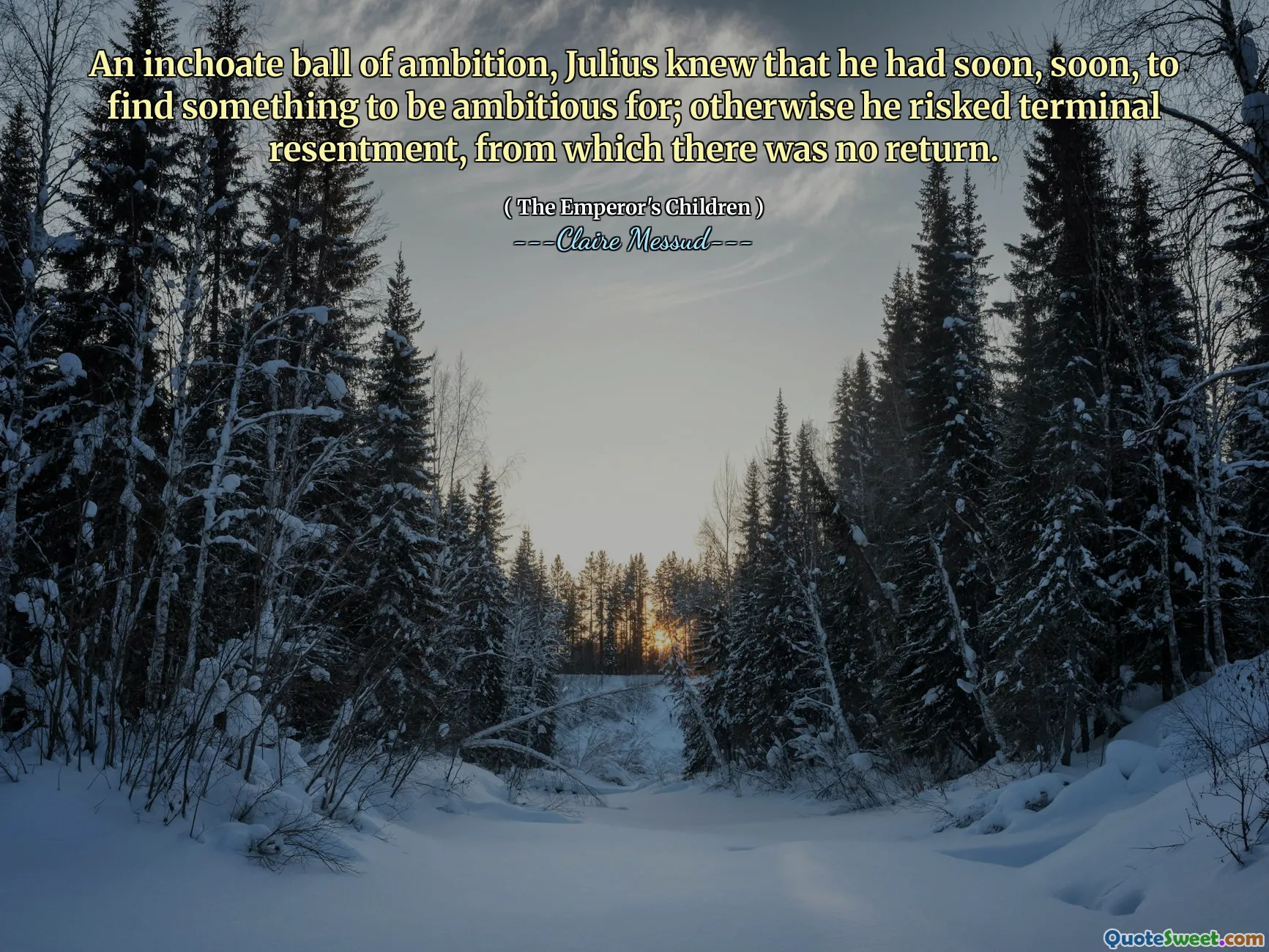
An inchoate ball of ambition, Julius knew that he had soon, soon, to find something to be ambitious for; otherwise he risked terminal resentment, from which there was no return.
This quote captures the restless human drive to find purpose and direction in life. Julius’s description as an "inchoate ball of ambition" suggests a state of raw, unformed desire—an energy waiting to be channeled into meaningful pursuits. The repetition of "soon, soon" emphasizes the urgency and impatience often felt when one recognizes the need to identify a goal or passion. It highlights the internal struggle between the ambiguity of one's current ambitions and the necessity to pursue something tangible before negative emotions, such as resentment or dissatisfaction, take hold.
The acknowledgment that failure to find purpose might lead to "terminal resentment" resonates deeply. Resentment can be corrosive, eating away at one’s sense of self, happiness, and capacity for growth. It suggests a moment of brinkmanship in personal fulfillment, where indecision or apathy might result in lasting regret or bitterness. This reflects the human condition—an ongoing quest for significance, achievement, or meaning. The phrase underscores that without direction, life’s energy can turn destructive, not necessarily externally but within oneself.
In a broader context, this quote reminds us of the importance of active self-examination and pursuit of passion. It asks whether individuals are aware of the ambitions that truly motivate them or simply drift through life without purpose. To live fulfilled, one must identify priorities and work towards them, lest the void of indecision fosters dissatisfaction that becomes hard to overcome. It also hints that finding that purpose is a process—we might be "inchoate" at times, but recognition and action are necessary for growth. This resonates with many of life's existential challenges and personal journeys, emphasizing that clarity of purpose is fundamental to mental and emotional well-being.






